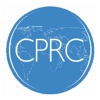Columbia Population Research Center
The Columbia Population Research Center (CPRC) is a multidsciplinary community of scholars unified by a commitment to research that addresses the health and wellbeing of vulnerable populations in the context of local and global inequalities and that informs policies affecting those populations. The primary goal of the CPRC is to promote research in its four signature areas: children, youth, and families; HIV/AIDS and reproductive health; immigration and migration; and urbanism.
To realize this mission, CPRC is structured—from its steering committee to the facilitation of its signature research area groups—to foster existing and emerging cross-campus research networks and to spark the development of new ones. By supporting an intellectually vibrant and productive multidisciplinary population research community at Columbia, CPRC will advance population research by producing new knowledge, deploying existing policy-relevant knowledge, and training the next generation of population researchers.
Additionally, Columbia’s location allows CPRC the unique opportunity to address population issues specific to or aggravated by New York City’s status as a global city. CPRC strives to further develop the many partnerships of Columbia researchers with researchers at other NYC universities and research centers, city stakeholders (e.g., the Department of Health and Mental Hygiene, community-based organizations, and many others), and with international organizations headquartered in NYC, in particular the United Nations.
Pathways into Program
Advanced doctoral students or postdoctoral fellows at Columbia can work with CPRC faculty as a fellow. They may be nominated by existing CPRC members and are appointed by recommendation of the codirectors and a majority vote of the Steering Committee.

